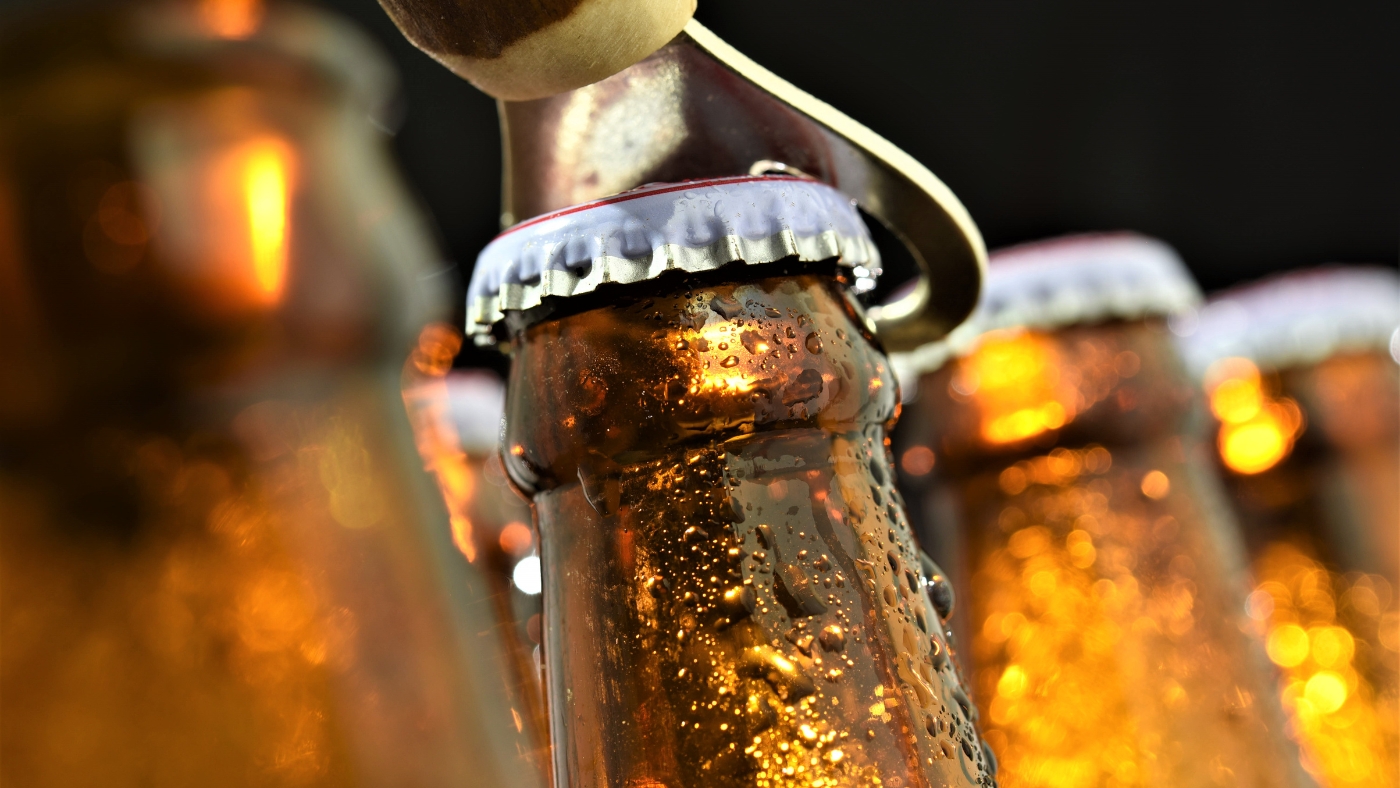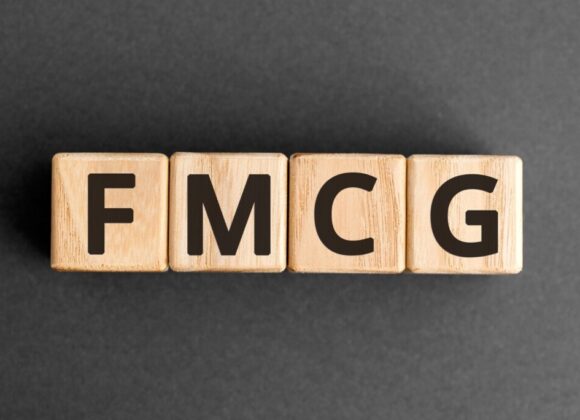Międzynarodowy Dzień Piwa, obchodzony 4 sierpnia, to najlepszy moment w roku na przyjrzenie się rzemieślniczym browarom, które od lat zyskują w Polsce prawdziwych pasjonatów. Kim jest beer geek? Jakie są największe wyzwania browarów rzemieślniczych? I jakimi piwoszami są Polacy? Na te i inne pytania odpowiada Irmina Wachna-Sosin, współwłaścicielka i kreatorka marki Browar Trzech Kumpli.
Co czyni branżę piwną niezwykłą? Co ją wyróżnia?
Przede wszystkim krótki dystans pomiędzy producentem i konsumentem. Rzadko zdarza się, aby klient miał możliwość bezpośredniego skontaktowania się z właścicielem firmy, porozmawiania z nim, wymiany myśli na temat swojego ulubionego produktu. W przypadku piw rzemieślniczych dzieje się to bardzo często. Fani kraftu doskonale orientują się w tym, kto jest właścicielem danego browaru, kto należy do zespołu, kto się czym zajmuje. Mają możliwość spotkania się ze swoimi ulubionymi ekipami na festiwalach piw rzemieślniczych, które regularnie odbywają się w różnych miastach. Często piszą też bezpośrednio do browaru za pomocą różnego rodzaju komunikatorów, dzieląc się swoimi zachwytami lub rozczarowaniami (bo to też się zdarza) dotyczącymi poszczególnych warek lub innych niuansów dotyczących piwa. Wydaje mi się to dość niezwykłe i cenne, że kontakt z producentem ulubionego piwa kratowego może być tak bliski, właściwie na wyciągnięcie ręki czy telefonu. To bardzo cenne dla obu stron, bo kontakt z klientem, jego głos, zainteresowanie naszym produktem, dobre słowo czy też konstruktywna krytyka, są dla nas ogromną motywacją.
Współpraca to kolejny wyróżnik tej branży. Browary rzemieślnicze, choć na co dzień ze sobą konkurują, potrafią też ze sobą wspaniale współpracować. Wymieniają się wiedzą i doświadczeniem w rozwiązywaniu różnych trudności związanych z produkcją, przepisami prawa lub innymi wymogami, a jest ich cały ogrom. Wspierają się też w trudnych sytuacjach, chociażby poprzez pożyczanie sobie brakujących surowców lub sprzętu niezbędnego do sprawnej produkcji piwa. W ogóle można powiedzieć, że kraft w Polsce, choć ciągle młody i formujący się, jest pełen ciekawych ludzi, z różnymi historiami, doświadczeniem, podejściem, ale każdy wnosi coś od siebie, a wspólnie tworzy to ogromnie ciekawy i wciągający świat.
Jakie największe wyzwania spotykają browary rzemieślnicze?
To trudne pytanie, bo browary rzemieślnicze na różnych etapach rozwoju mierzą się z innymi wyzwaniami, ale wydaje mi się, że teraz takim największym wyzwaniem dla wszystkich nas jest odnalezienie się w nowej rzeczywistości finansowo-gospodarczej. Dla wielu małych browarów, które do tej pory działały z miesiąca na miesiąc, bez zapasowej poduszki finansowej lub bez wsparcia inwestorów, ten czas może okazać się przeszkodą nie do przejścia.
Natomiast z perspektywy 9 lat prowadzenia i rozwijania browaru wyzwaniem może być też wyjście z paradygmatu samodzielnego wykonywania wszystkich obowiązków i gotowość zainwestowania w rozwój zespołu. Prowadzenie browaru rzemieślniczego to także zarządzanie takimi obszarami jak: sprzedaż, dystrybucja, pozyskiwanie funduszy, inwestycje, kontroling finansowy, szeroko rozumiane kwestie prawne, budowanie zespołu, marketing, strategiczny rozwój marki, a każdy z tych obszarów to osobny wszechświat. My także na początku działaliśmy w bardzo ograniczonym składzie, większość obowiązków wykonywaliśmy z mężem samodzielnie, ale bardzo szybko zrozumieliśmy, że bez zbudowania i wsparcia dobrego zespołu nie damy rady. Na szczęście decyzja o zatrudnieniu osób i zgoda na tę inwestycję była jedną z lepszych, jakie podjęliśmy. Przez kolejne lata udało się rozwinąć zespół Trzech Kumpli, który jest obecnie naszą dumą i ogromnym wsparciem, a my dzięki temu możemy mieć jakąkolwiek przestrzeń na to, aby zastanowić się dokąd zmierzamy i jak chcemy tam dotrzeć.
źródło: pixabay
Jakimi piwoszami są Polacy? Który rodzaj piwa jest ich ulubionym?
Nie odważę się wskazać ulubionego rodzaju piwa dla wszystkich Polaków, ale chyba mogę zaryzykować stwierdzenie, że coraz bardziej ulubione staje się po prostu dobre piwo. Polacy są coraz bardziej świadomymi i wyedukowanymi konsumentami piw kraftowych. Osoby, które już mocno zanurzyły się w świat piw rzemieślniczych, tzw. Beer Geecy doskonale wiedzą, jak smakuje dobrej jakości piwo rzemieślnicze, potrafią rozpoznać jego wady, wiedzą, czego można oczekiwać od danego stylu. Mają też oczywiście swoje ulubione piwa, ale przede wszystkim sporo testują, poszukują nowości i oceniają swoje wybory na odpowiednich portalach.
Z kolei osoby, które „jedynie” lubią piwo i nie zajmują się nim aż tak dogłębnie, wydają mi się być coraz bardziej otwarte na świat kraftu. Oni szukają dla siebie po prostu dobrego smaku. W naszym sklepie firmowym w Tarnowie pojawia się coraz więcej osób, które pytają właśnie o „dobre piwo”. Ktoś im polecił, u kogoś spróbowali i ten smak ich zachwycił. Odkrywają z nami swoje piwne preferencje, o których wcześniej nawet nie wiedzieli. Wyraźnie widać też, że ilość coraz częściej przechodzi w jakość. Od klientów słyszymy, że wolą napić się mniej, ale jednak czegoś, co im bardzo smakuje i jest dobrej jakości.
Na co, poza smakiem, zwracamy dziś uwagę przy wyborze alkoholu?
Obok jakości zwracamy też uwagę na jego transparentność, a więc kto produkuje dany alkohol, z czego, jak i gdzie. Istotną kwestią jest też lokalność. Chętniej próbujemy czegoś, co powstaje niedaleko albo jest związane z regionem, w jakim chwilowo przebywamy. Te produkty wtedy nas ciekawią, są pewnym dopełnieniem doświadczenia, jakie mamy z danym miejscem. Na nasz wybór coraz częściej mają też wpływ kwestie związane z nasza dietą, a więc kaloryczność, to czy piwo jest wegańskie, bezglutenowe, no i także to, jaką ma zawartość alkoholu, bo coraz częściej sięgamy też po piwa bezalkoholowe.
Jakich wartości poszukuje dzisiejszy konsument piwa? Co go przekonuje?
Myślę, że autentyczność, uczciwość i jakość. To wszystko brzmi może trochę górnolotnie, ale tak właściwie cechy te są łatwo odnajdywalne w każdym kuflu piwa. Aby piwo, które codziennie wlewamy do butelek, puszek i kegów, było takie jak chcemy i lubimy (*warzymy co lubimy), a więc miało odpowiednią jakość, musi powstawać z najwyższą starannością i dbałością o szczegóły.
Zaczyna się to już na etapie wymyślania piwa, kiedy decydujemy jakie będzie, jak ma smakować, jak będzie wyglądać etykieta. Ogromne znaczenie ma też dla nas wybór surowców, każdy etap wrzenia, sposób przechowywania piwa, transport. Bardzo dużo wysiłku wkładamy też w to, jak gotowe już piwo przedstawiamy klientom. Wszystko to wymaga ogromu pracy, wysiłku i zaangażowania wielu ludzi, ale też autentyczności i uczciwości na każdym kroku – produkcji samego piwa oraz relacji biznesowych, jakie budujemy. Uważam, że bez tego nie da się warzyć dobrego piwa, albo da się, ale tylko na krótką metę, bo prędzej czy później odbiorcy i tak wyczują, czy produkt jest dobry i zgodny z tym, co pisze się na stronie browaru czy social mediach.
Dla mnie, jako współwłaścicielki browaru, te trzy wartości od początku były bardzo znaczące i chcę wierzyć, że nasi klienci nie tylko ich poszukują, ale też znajdują je w naszych piwach.
Od kilku lat piwa kraftowe zyskują coraz większą popularność w naszym kraju. Z czego to wynika?
Ludzie są zmęczeni masową produkcją, chcą znać producenta, wiedzieć gdzie i jak produkowane jest ich piwo, identyfikują się z małymi i lokalnymi producentami, to ich chcą wspierać. To dzieje się nie tylko w branży piwnej, ale także odzieżowej czy spożywczej, gdzie szukamy np. lokalnych serów, miodów, rzemieślniczych czekolad czy soków z małych wytwórni. Chcemy używać i spożywać produkty o coraz lepszej jakości, jesteśmy coraz bardziej świadomi, chcemy mieć wybór.

źródło: pixabay
Jak skomplikowana jest produkcja piwa rzemieślniczego, kraftowego?
Sam proces warzenia piwa jest właściwie prosty i całkiem dobrze opisany w wielu miejscach: w książkach, gazetach, na forach czy blogach, także na naszej stronie, gdzie serdecznie zapraszam zainteresowanych poszczególnymi etapami. Nie jest to więc tajemna wiedza. Widać to chociażby po ilości piwowarów domowych, których ciągle przybywa. Wiele browarów, w tym nasz, miało właśnie takie początki. Warzenia pierwszych warek odbywały się w domowych kuchniach.
Komplikacje zaczynają się w momencie przejścia na „duże gary”, kiedy z 30-litrowych pojemników fermentacyjnych trzeba przesiąść się na kilka wielkich tanków 30 hl, 60 hl lub 90 hl (przypomnę, że 1 hl to 100 l). Ta zmiana może przytłaczać, a proces warzenia dobrego piwa w tak wielkiej skali jest już o wiele bardziej skomplikowany. To jak z gotowaniem – łatwiej ugotować dobrą zupę dla 4-8 osób, niż dla 300 czy 500 osób i to jeszcze za każdym razem tak samo smaczną. Dla fanów piw rzemieślniczych ważna jest jakość, ale też powtarzalność warek. Utrzymanie tak samo wysokiej jakości piw, tak samo dobrego smak i aromatu często jest ogromnym wyzwaniem, bo mamy też do czynienia z różnymi partiami surowców. Tu też, podobnie jak w gotowaniu zupy, inna pomidorowa wyjdzie na pomidorach w lecie, a inna na pomidorach w zimie, nawet wtedy gdy w samym przepisie nic się nie zmieni. Warzenie w browarze na wielką skalę wymaga więc odpowiedniego przygotowania. Potrzebne są większe nakłady finansowe, większe zatowarowanie się, odpowiednie zasoby logistyczne, magazynowe, no i wreszcie pomysły na promocję i sprzedaż. Żonglowanie tymi wszystkimi piłeczkami bywa skomplikowane. Nie uda się to bez zaawansowanej wiedzy i doświadczenia piwowarów oraz dobrego zespołu na pozostałych frontach.
Kto jest konsumentem piwa kraftowego? Jaka jest główna persona Waszej marki?
Mamy dwie główne persony, które oczywiście nie opisują całkowicie wszystkich naszych odbiorców, ale jednak stanowią ogromną większość.
Pierwsza z nich to tzw. beer geek, o którym już wspominałam, a więc osoba bardzo mocna osadzona w krafcie, znająca browary, tworzących ich ludzi, śledząca nowości. Beer geek jeździ na festiwale piwne, kupuje w sklepach specjalistycznych, odwiedza puby. Wypite piwa ocenia w sieci, prowadzi swoje statystyki. Interesuje go głównie piwo.
Druga to świadomy konsument, który lubi dobre jedzenie, dobre produkty, ceni sobie jakość, lokalność, mniejszą produkcję rzemieślniczą. Interesują go nie tylko piwa, ale też dobry chleb, ser, wędliny i inne produkty wytwarzane w zrównoważony sposób. Często podróżuje, poszukuje nowych smaków, odwiedza dobre restauracje. W ten sposób najczęściej trafia na piwo Trzech Kumpli.
Czy macie dużą konkurencję na polskim rynku piwowarskim? Czy ten sektor jest nasycony?
Do nasycenia jest jeszcze daleko, sądząc po tym, że udział piw rzemieślniczych w rynku piw wynosi ciągle mniej niż 1% (W 2020 roku Polskie Stowarzyszenie Browarуw Rzemieślniczych szacowało, że udział tzw. piwa kraftowego w rynku piwa ogółem w Polsce wynosił w przybliżeniu 0,6%). Ostatnie trudne wydarzenia takie jak pandemia, wojna, a także inflacja i znaczący wzrost cen surowców mocno spowolniły dynamiczny wzrost tego udziału. Trudniej też startuje się całkiem nowym browarom. Mimo to branża jest ciągle młoda, stale się rozwija, powstają nowe browary, nowe inicjatywy. Konkurencja jest i rośnie, ale nas to cieszy, bo to rozwija całą branżę, pozwala dotrzeć do kolejnych miłośników piw, którzy eksplorując nowe smaki przejdą na stronę kraftów.
Czy kryzys i wysoka inflacja spowodowały tąpnięcie w tym sektorze?
Tak, oczywiście i to całkiem spore. Nagły wzrost cen za prąd, gaz, surowce i transport mocno zachwiały rentownością wielu produkcji. Jednocześnie nagle spadła sprzedaż, restauracje i puby zamknęły się, a ludzie zmuszeni do oszczędności w pierwszej kolejności zrezygnowali z dóbr luksusowych. My także to odczuliśmy, ale na szczęście udało nam się przetrwać najtrudniejszy czas głównie poprzez zmniejszenie skali produkcji oraz rezygnację z wszelkich dodatkowych inwestycji. Powoli i systematycznie wracamy do swoich poprzednich wielkości produkcyjnych.
Jaka przyszłość czeka piwa rzemieślnicze? Czy jest na rynku miejsce dla małych browarów, dopiero rozpoczynających swoją działalność?
Wierzę, że ta branża ma przed sobą jeszcze wiele dobrego, że będzie wzrastać, dojrzewać i wchodzić na kolejne etapy rozwoju. Browary obecne na rynku już kilka lat będą się nadal rozwijać i rosnąć, choć pewnie nie tak szybko jak w pierwszych latach piwnej rewolucji. Z pewnością ciągle jest sporo miejsca na nowe browary, szczególnie takie, które postawią na jakość, lokalność, będą wytrwałe w dążeniu do celu.
Czego, z okazji Dnia Piwa, życzyć firmom takim jak Browar Trzech Kumpli?
Wytrwałości i samych udanych warek. No i żeby, w tej często trudnej codzienności, nigdy nie zatracić miłości do kraftu!








![Guest experience i pojęcie hospitality okiem eksperta: Antoine Azaïs [wywiad] FOOD AND DESIGN - zdjęcia do artykułów (12)](https://foodanddesign.pl/wp-content/uploads/2024/05/FOOD-AND-DESIGN-zdjecia-do-artykulow-12-580x420.png)



 Młodszy specjalista ds. komunikacji marketingowej i PR.
Młodszy specjalista ds. komunikacji marketingowej i PR.


 Absolwent Uniwersytetu Warszawskiego oraz Szkoły Głównej Gospodarstwa Wiejskiego. W branży HoReCa od ponad 10 lat. Przez lata związany z Grupą Trip, Sobienie Królewskie Golf and Country Club oraz restauracją Florentin w Warszawe.
Absolwent Uniwersytetu Warszawskiego oraz Szkoły Głównej Gospodarstwa Wiejskiego. W branży HoReCa od ponad 10 lat. Przez lata związany z Grupą Trip, Sobienie Królewskie Golf and Country Club oraz restauracją Florentin w Warszawe. Absolwentka Wydziału Architektury Politechniki Warszawskiej na kierunku Architecture for Society of Knowledge oraz Komunikacji Wizualnej na Politecnico di Milano. Specjalistka od budowania nastroju. Doświadczenie zdobywała w kraju i zagranicą podczas licznych warsztatów międzynarodowych (Sevilla, Lizbona, Florencja), stypendium na La Sapienza (Rzym) oraz pracując m.in. w Carmi e Ubertis i ADM Milano.
Absolwentka Wydziału Architektury Politechniki Warszawskiej na kierunku Architecture for Society of Knowledge oraz Komunikacji Wizualnej na Politecnico di Milano. Specjalistka od budowania nastroju. Doświadczenie zdobywała w kraju i zagranicą podczas licznych warsztatów międzynarodowych (Sevilla, Lizbona, Florencja), stypendium na La Sapienza (Rzym) oraz pracując m.in. w Carmi e Ubertis i ADM Milano.








 Menedżer z wieloletnim doświadczeniem w branżach kosmetycznej, spożywczej, dziecięcej. W trakcie swojej kariery związany z firmami takimi jak: L’Oreal, Samsung, Danone-Nutricia, Unilever. W ciągu swojego życia zawodowego odpowiadał między innymi za rozwój sprzedaży i contentu eCommerce w Polsce i krajach Europy Środkowo-Wschodniej.
Menedżer z wieloletnim doświadczeniem w branżach kosmetycznej, spożywczej, dziecięcej. W trakcie swojej kariery związany z firmami takimi jak: L’Oreal, Samsung, Danone-Nutricia, Unilever. W ciągu swojego życia zawodowego odpowiadał między innymi za rozwój sprzedaży i contentu eCommerce w Polsce i krajach Europy Środkowo-Wschodniej. 

























































